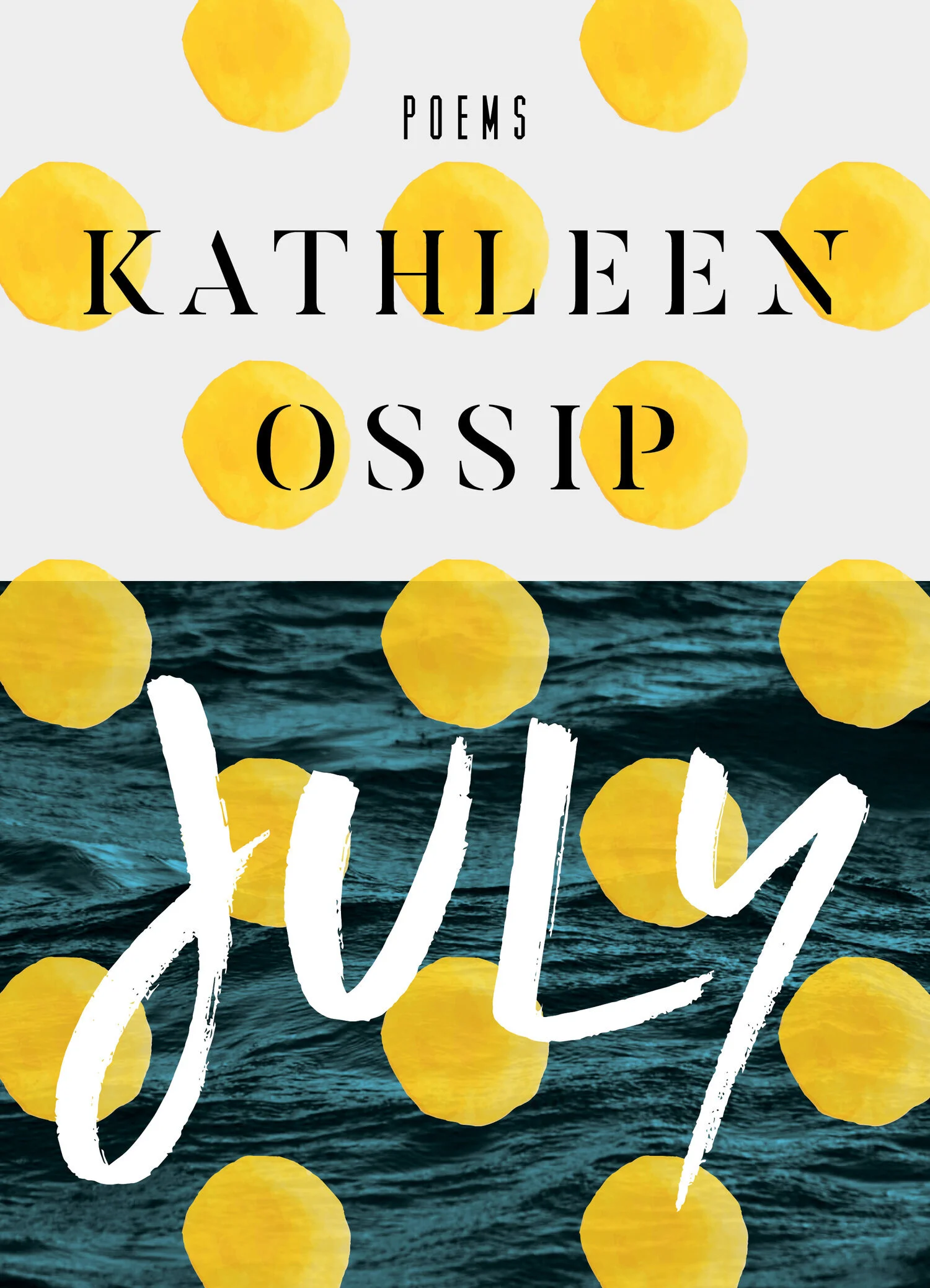July
In her groundbreaking, and most politicized, collection, Kathleen Ossip takes a hard look at the U.S.A. as it now stands. She meditates on our various responses to our country—whether ironic, infantile, righteous, or defeated. Her diction is both high and low, her tone both soaring and straightforward. The book’s crowning achievement, its anchor, and its centerpiece is the poem “July.” In a generous fifty pages, Ossip recounts a road trip from Bemidji, MN to Key West, FL, with her daughter riding shotgun. Inspired by images that flick across their car windows and nurtured by intimate conversation and plenty of time to think, the poem has an entertaining cinematic sweep. There are poems based on bumper stickers, the names of churches, and shops in “glossy malls.” Traveling tests her beliefs, and Ossip fully discloses her doubts and confusions. “I’m a nice asshole,” she says, while waiting for change. Later, she contrasts the contemporary hell of Trump’s presidency with Dante’s Paradiso, in a quest for “our own sublime.” Ossip is an unconventional, mighty magician with words.
Some poetry collections, not overtly, teach you things. In the case of Kathleen Ossip’s JULY, the thing is the true difference between reaction and reflection. This collection is a wondrous (in its multimodal alacrity and unruliness) and wonderful (in its Goddess-eye panning of the United States and its self-critical threading of one woman’s mind and body) reconsideration of pasts recent and distant, personal and national. Arriving in the current American milieu from out a period in history that obsessively lauded thin hope, our speaker in these poems can only question if hope is really there, or if it is even wise to gaze for it as though it is some sun blocked by clouds—“I found my happiness not in the optics,/ a bit in the progress, a bit in the thinking.” A welcome counterpoint of a book in this age of breakneck resistance and casual rage.
—Kyle Dargan
“Your ardor comes on like a pun,” writes Kathleen Ossip in this constantly surprising, open-eyed collection, “making the most of / all possible significances.” That she's so concerned with love in a book that reckons with political crisis suggests the peculiar depth of these poems. As she writes, “Boredom is a withdrawal / of attention. Pay attention!” July charts something like the mechanics of human attentiveness, tracing the mind’s movement with maximum candor and in the process kicking open new doors of possibility for the poem.
—Jana Prikyl
Helplessly encyclopedic, forever tender, unafraid of variety and willing to sound awkward in order to get real, this ample book unfolds “much joy and much happiness” with its “what yes no,” its depths, heights and desires, its “river of baroque pearls.” “Anger better than complacence,” the sequences here—first travel, then supple sonnets-
find a Paradise inside and beside a near-future Inferno, a loving America that somehow “doesn’t fall.” Raising a teenage daughter, living with and against her own white bourgeois privilege, touring the Upper Midwest and then the South and imagining “a ride in a Corvette,” concluding that “Safety is something to give not take,” Ossip’s work is extremely America, very right now, heartbreaking, not knowing what else we can do: I commend it to you.
—Stephanie Burt
What’s a poet to do in a time when the great weapon used to suppress critical thought is a raw overwhelm of meaningless language? Kathleen Ossip demonstrates one approach in her brilliant July, which feels at once totally intimate, familiar, and also miraculous, unprecedented. Ossip writes, “Smoothly the current does / not run; smoothness can never shock,” and then she shocks us, staggers and stranges and de-euphemizes the language to allow her readers to finally, at last, really hear it again. What’s a poet to say to her nation as it crumbles apart? “We need faith while the possible is possible. / After, we need hope.”
—Kaveh Akbar
